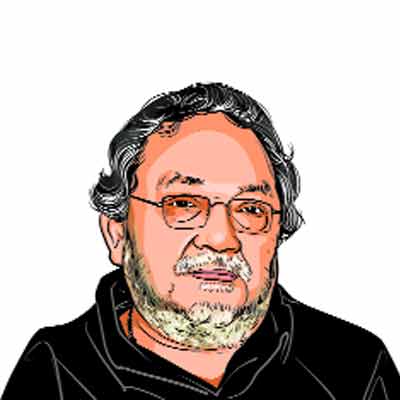Let me count the ways
Girish Karnad’s phenomenal creativity was fuelled by the fact that he tapped into several different linguistic traditions, contexts and resonances.

The flood of obituary encomia speaks of Girish Karnad’s clearly immoderate pursuit of distinction. Even a fraction of what he achieved in diverse fields — in theatre and cinema, as a writer and a performer, actor, director, institution builder, as a public intellectual who embodied courage but also grace — would have been sufficient. More than, Karnad’s career is an amalgam of many different kinds of excellence. Excellence such that, for instance, the Rhodes Scholarship and the Oxford Union presidentship are barely visible in the glow that comes from all the other marks of recognition: The numerous Padma awards, President’s awards, Sahitya Akademi, Sangeet Natak, Jnanpith, you name it — awards for direction, for acting, for writing; for positions held with distinction. And even, on occasion, forsworn with distinction: He resigned from the directorship of the Film and Television Institute of India following the declaration of Emergency in 1975. All things considered, so to speak — the sums don’t add up: All of this couldn’t just relate to one man. It is entirely appropriate then that this is no longer about one man — Karnad has become an icon. And this is my brief, preliminary exploration of the meanings of this iconicity. (Forgive me, my friend.)










.png)




























No hay comentarios:
Publicar un comentario